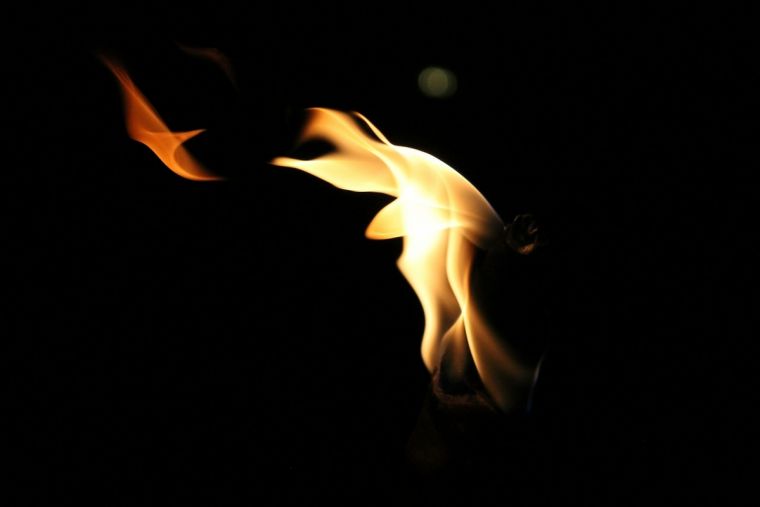What is my calling? How to discern without a burning bush
A while ago I listened to a sermon about saying 'yes' to God's call in which the pastor asked us how we would respond if we had a burning bush moment. Would we have the courage to say 'yes' or would we, like Moses, make excuses and politely suggest that God ask someone else?
It was a good sermon, encouraging prayerful reflection on where God might be calling us. Unfortunately for me, it came at a time when I was earnestly praying for direction, desperately seeking answers to questions that would not go away. I could sense a call to something, knew I was on the brink of something new but there was no flesh to it. When I prayed there was a deafening silence. All I could think about was how fortunate Moses was to receive a moment in which his call was made utterly unambiguous. That night I prayed that God speak to me, to ask anything of me but to make it clear.

I'd like to say that I immediately heard a booming voice or that my houseplant spontaneously caught fire. Sadly not. Instead there was more silence. I signed up for spiritual direction and during my first meeting told my director about my sense of a call without flesh and laid bare the full extent of my angst. She listened with patience, understanding and compassion. At the end she reflected back to me that I was clearly being led somewhere but that I was struggling to remain patient while the 'where' became clear. Initially I was disappointed; I already knew this much and I had been secretly hoping she would have some sort of prophetic message for me. But then I realised how right she was. I was reminded of a quote from one of my spiritual heroes, Henri Nouwen: 'You can't see the whole path ahead, but there is usually enough light to take the next step.'
I had forgotten that this side of heaven we walk by torchlight. I was expecting daylight. As St Paul tells us, 'now we see in a mirror dimly, but then we will see face to face' (1 Cor 13:12).
This limit placed on our vision can sometimes seem mean-spirited and perhaps, during dark times, even cruel, but it is actually the opposite: a gift for our own good. If we were to see the whole path we would probably back away in fear or fall into complacency. Both would be bad news for our spiritual development. Instead God graciously gives us what we need to take the next step along the journey, much as a loving parent gradually and gently reveals truths about the ways of the world.
But even when we accept that we must walk by torchlight it is likely that most of the time we will struggle to do so. This struggle has two sides. Sometimes we lag behind where the light is shining, afraid or unwilling to take the next step by saying 'yes' to a new opportunity, a deeper relationship or a request for help. As Brené Brown puts it, we refuse to show up and be seen. This was Moses' struggle and it is often ours as well. At these times, we may avoid prayer because we already know what that still small voice will whisper to us in our hearts.
At other times we refuse to remain in the pool of torchlight because we are too eager to push ahead. We want to see the whole path, not just the next step. We sense God is up to something and want to know what. We open our Bibles, read books, ask friends, Google. At these times, our prayer life is likely to be earnest and demanding. To an extent all of this is good. Jesus encourages persistence in prayer, and if we sense a call without flesh we should be leaning into it and opening ourselves up to hearing what God is saying to us.
As Nouwen explains in his book on discernment, God is speaking to us all the time, inviting us into deeper knowledge of him and of ourselves; all that remains for us is to learn how to read the signs of everyday life. But sometimes our desire for answers becomes anxious and self-absorbed and we become frustrated and unable to be present. At these times we need to slow down, to wait and to step back into the torchlight where only the next step is clear.
Initially this may feel disappointing: we are ready to act and to wait feels unproductive and boring. But if we lose our willingness to wait, we also lose our ability to be led. Instead of allowing that light to guide us we begin to try to control it. If we are constantly straining to move beyond the light we forget to delight in the light. And delight we should, because the light that guides us is the Light of the world. It is Jesus himself who holds the torch that guides our path.
Whether we are struggling to stay in the light because we are afraid or because we are impatient, we can be confident that the light will never leave us. It shines in the darkness of our uncertainty and reminds us that he is Emmanuel, God with us, always.
Jennifer Goodyer is a writer and artist living in Chicago. Follow her on Twitter @goodyerjen











